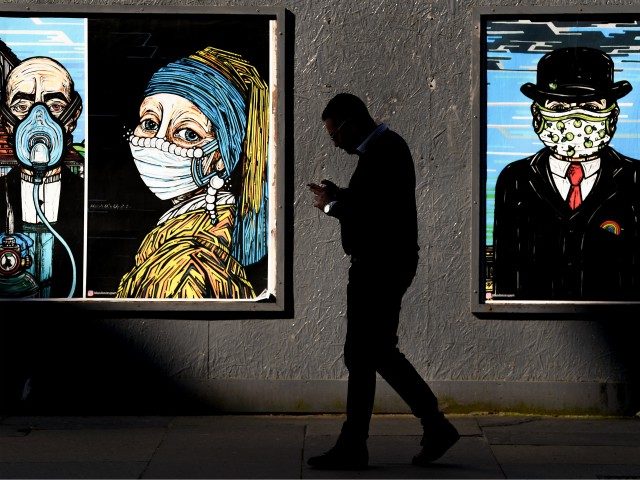Conservative MP Philip Davies has criticised the government’s “nanny state socialist” coronavirus response, after the House of Commons had voted to extend the emergency powers which gives the prime minister autonomy to pass legislation without requiring parliamentary scrutiny.
Addressing Health Secretary Matt Hancock in the House of Commons on Thursday, Mr Davies criticised the “arbitrary” 10 pm curfew on pubs, restaurants, and other social venues which he said is destroying Britain’s hospitality industry and thereby putting Britons out of work.
“When will the Secretary of State start acting like a Conservative with a belief in individual responsibility and abandon this arbitrary, nanny-state socialist approach which is serving no purpose at all apart from to further collapse the economy and erode our freedoms?” the MP for Shipley said, according to the Evening Standard.
Mr Davies is not the only Conservative MP to have criticised the government’s approach to handling the pandemic, with the Johnson administration being free to pass emergency measures without parliamentary scrutiny, including the pubs curfew, a ban on gatherings larger than six, harsher fines for not wearing a mask, and imposing local lockdowns across the country.
Brexiteer MP Steve Baker had warned last week that “liberty dies… with government exercising draconian powers without parliamentary scrutiny in advance, undermining the rule of law by having a shifting blanket of rules that no one can understand”.
“It is essential that the House of Commons should have the opportunity to debate and vote on emergency measures before they come into force,” Mr Baker said.
The Brexiteer was one of the most vocal backers of the Brady amendment — named for the chairman of the backbench 1922 Committee Sir Graham Brady — which sought to force ministers to allow for debate and vote before any more coronavirus measures were put in place.
The amendment to the emergency coronavirus law — which turned six months old last week — had the reported support of 80 Conservative MPs.
However, despite Speaker of the House of Commons Sir Lindsay Hoyle criticising the government for how it exercised its powers, he chose not to select the amendment, claiming that it could bring into question the legality of the Act itself, opening up possible legal challenges.
Despite the estimate 80 Conservative ‘rebels’, the law was renewed on Wednesday by 330 votes to 24. A deal was struck between the rebels and health secretary, with ministers promising to allow votes on coronavirus measures “wherever possible”.
Both Mr Baker and Sir Graham appeared satisfied by the government’s pledge, with Sir Graham saying: “We are grateful that he [Hancock] and other members of the Government have understood the importance of proper scrutiny in this place and the benefits that that can bring for better government.”
However, Mr Hancock did not specify which topics would be reserved for debate, intimating that ’emergency’ measures would still be liable for decree by the prime minister.
“The government must act with speed when required and we cannot hold up urgent regulations which are needed to control the virus and save lives,” the health secretary said on Wednesday.
Of the 24 who voted against renewing the powers were six Labour MPs and seven Tories, the latter of which were Mr Davies and his wife and fellow MP Esther McVey, veteran Brexiteer Peter Bone, Philip Hollobone, Desmond Swayne, Charles Walker, and William Wragg.
Speaking to the BBC’s Newsnight after voting against the government, Mr Bone said: “I think parliament should decide these things. I don’t think it should be decided by ministers behind closed doors or worse still, a special advisor behind closed doors.
“This is major restrictions against the liberty of British people. It should be made by parliament.”
“What has the government got to be scared of in parliamentary scrutiny?” the Brexiteer asked.

COMMENTS
Please let us know if you're having issues with commenting.